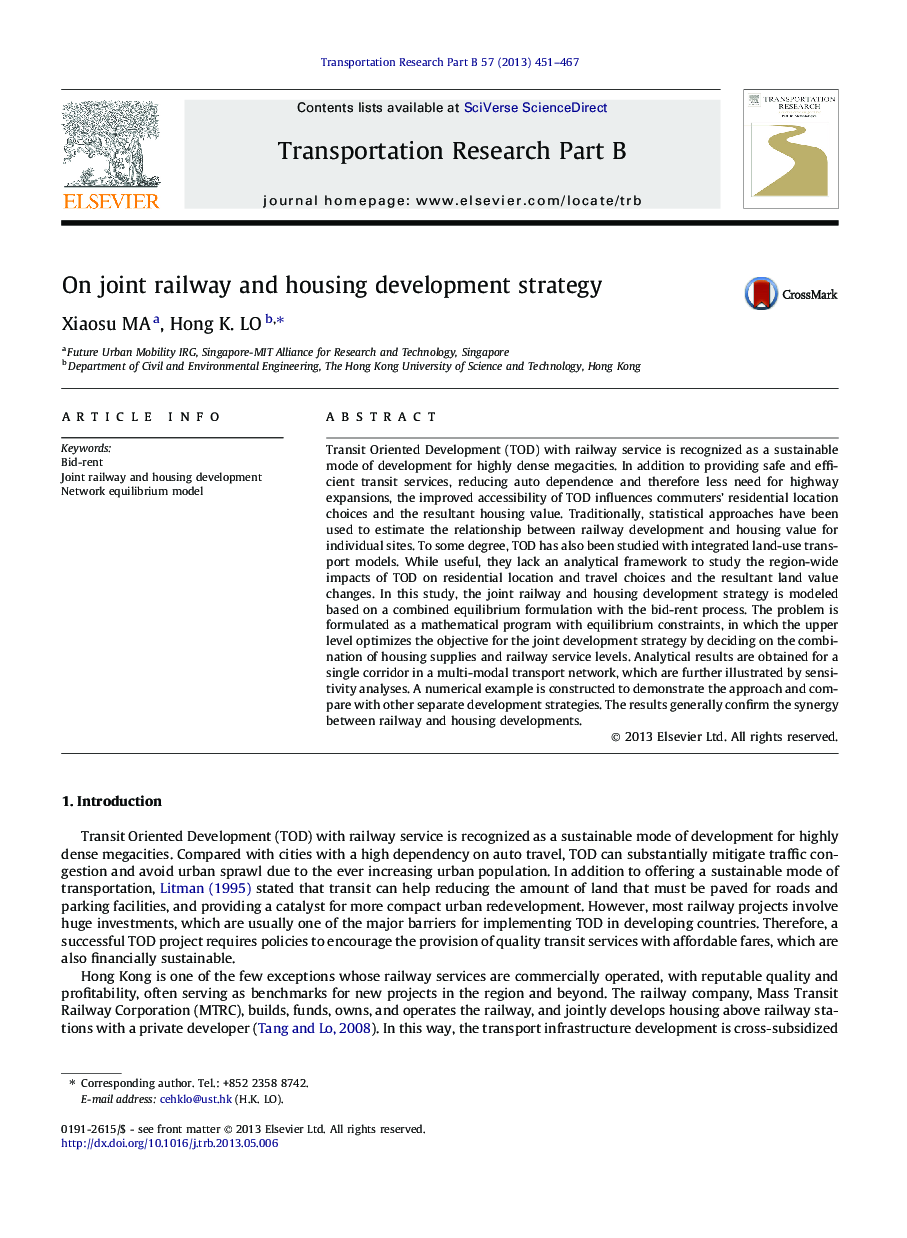| Article ID | Journal | Published Year | Pages | File Type |
|---|---|---|---|---|
| 1131975 | Transportation Research Part B: Methodological | 2013 | 17 Pages |
•We develop an analytical framework for joint railway and housing development.•We prove that railway investment does not change consumer surplus.•Developers will keep fare low in order to maintain high producer surplus.•The gain from property value offsets reduction in fare revenue.•The results confirm the synergy between railway and housing developments.
Transit Oriented Development (TOD) with railway service is recognized as a sustainable mode of development for highly dense megacities. In addition to providing safe and efficient transit services, reducing auto dependence and therefore less need for highway expansions, the improved accessibility of TOD influences commuters’ residential location choices and the resultant housing value. Traditionally, statistical approaches have been used to estimate the relationship between railway development and housing value for individual sites. To some degree, TOD has also been studied with integrated land-use transport models. While useful, they lack an analytical framework to study the region-wide impacts of TOD on residential location and travel choices and the resultant land value changes. In this study, the joint railway and housing development strategy is modeled based on a combined equilibrium formulation with the bid-rent process. The problem is formulated as a mathematical program with equilibrium constraints, in which the upper level optimizes the objective for the joint development strategy by deciding on the combination of housing supplies and railway service levels. Analytical results are obtained for a single corridor in a multi-modal transport network, which are further illustrated by sensitivity analyses. A numerical example is constructed to demonstrate the approach and compare with other separate development strategies. The results generally confirm the synergy between railway and housing developments.
